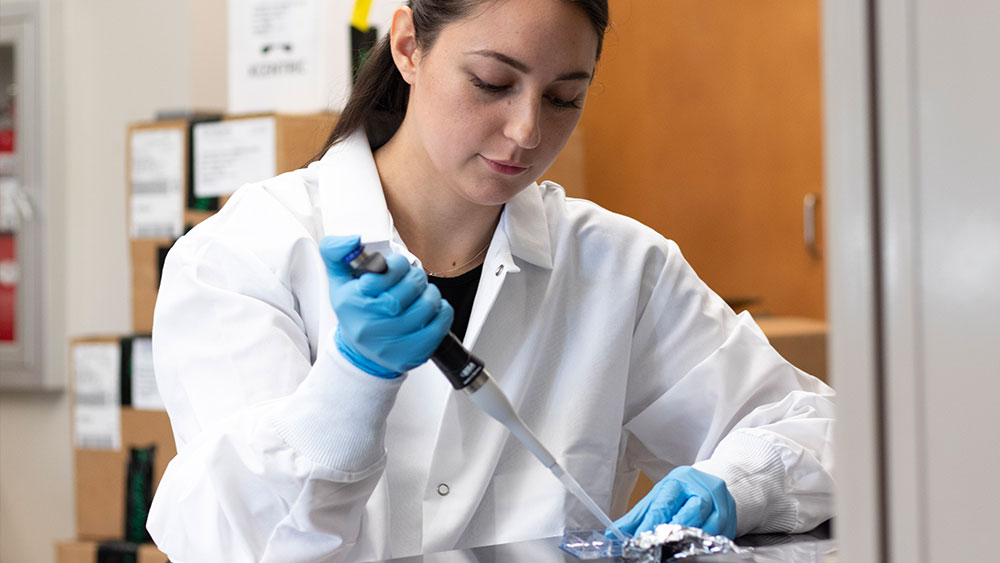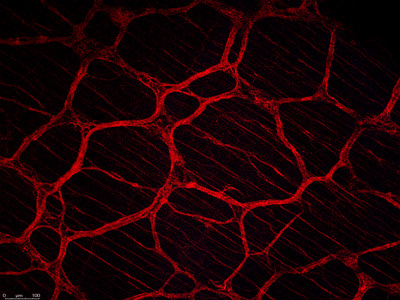
Growing up, Texas A&M University biomedical engineering doctoral student Claudia Collier understood that a family outing could abruptly end at any moment. The possibility that her mother might suffer from a flare-up loomed, regardless of the event or plan. A flare-up not rooted in a genetic disorder, disease or virus, but rather something that followed her from the time she spent serving her country — Gulf War illness (GWI).
GWI is a chronic, multi-symptomatic disorder that affects over one-third of Gulf War veterans. Those with GWI experience symptoms differently, but common ailments include fatigue, gastrointestinal disorders, joint pain, headaches and memory lapses.
Now, more than two decades after her mother’s deployment, Collier dedicates her research to identifying the origin of GWI symptoms. The underlying cause of this condition is unknown but has been linked to various chemical exposures soldiers experienced while deployed during the Gulf War. However, Collier believes Pyridostigmine Bromide (PB), a pretreatment to protect against nerve gas, might be the chemical to blame.
“PB exposure at these high levels causes the colon to move abnormally, and when the colon moves abnormally, it usually causes chronic diarrhea or constipation,” Collier said. “We've also seen high levels of neuroinflammation, which stem from an inflammatory response that is not only happening at the time of exposure but is prolonging and sustaining itself, attributing to how we're still seeing symptoms 20 to 30 years later.”
Although the symptoms of GWI are wide-ranging, Collier sees a pathway to finding an effective treatment for the gastrointestinal aspect of the illness.
“There's very little research being done on the gastrointestinal dysfunctions of GWI,” she said. “Your gut is like a second brain because it has its own nervous system, known as the enteric nervous system. Then, you also have the immune component of the gut, which brings in another layer of complexity. The immune system can get hijacked, leading to other issues like chronic inflammation.”

Collier’s ongoing research builds upon her recently released paper titled “Acute Exposure to Pyridostigmine Bromide Disrupts Cholinergic Myenteric Neuroimmune Function in Mice” in Advanced Biology. Her previous findings show that PB alters the proliferation of neuronal stem cells responsible for replacing the old and dying neurons in the enteric nervous system.
“When you have neuroinflammation, it causes neurons to die over time,” Collier said. “Combined with enteric neural stem cells not being able to regenerate, you are left with a colon that does not have all the nerves it needs to move normally. That's what we believe is happening to these veterans and why they're still experiencing the symptoms. No healing or regeneration is happening, and it's getting worse and worse as time goes on, as our veterans age.”
The existing treatment approach for veterans with GWI falls short in addressing the comprehensive needs of patients, often only providing relief for one symptom among many. Collier hopes an all-encompassing treatment becomes possible by finding the root cause of GWI.
“GWI is a huge problem because of how many different types of systems it affects,” Collier said. “When people look at GWI, it only afflicts a small subset of the population. But they’re still people, and their quality of life is severely affected. We still need to continue to research to find ways to elevate their quality of life.”
As Collier continues her research into GWI, she is supported by the National Defense Science and Engineering (NDSEG) graduate fellowship. Only 150-350 applicants are awarded the NDSEG fellowship annually, which is given to students in science and engineering disciplines relevant to the Department of Defense mission. Fellows benefit from full tuition and fees coverage along with a monthly stipend, mentorship and support for conference attendance.
Collier is advised by Dr. Shreya Raghavan, an assistant professor in the biomedical engineering department, and conducts her research in the Stem Cell, Cancer and Immune Tissue Engineering Lab. Collier is determined to find answers for the veterans affected by GWI.
“My mom was deployed to Kuwait during the Desert Storm and Desert Shield era, and when she came back, she exhibited GWI symptoms that were later diagnosed,” Collier said. “I see research as an option to be hands-on and translational. This is my opportunity to help not just my mom but others affected by GWI.”